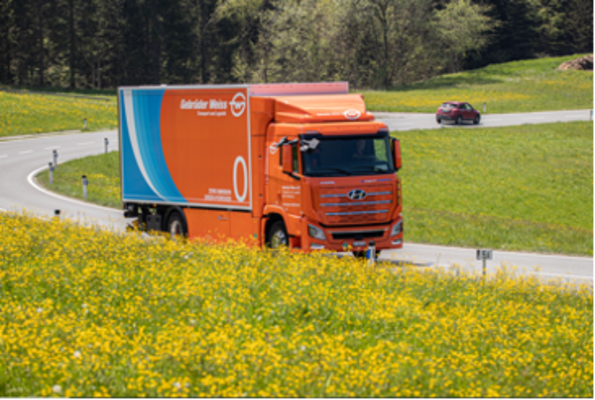Gebrüder Weiss teams up with coffee maker Atinkana to create an eco-friendly transport

Santa Marta / Basel / Lauterach, August 18, 2023. Coffee manufacturer Atinkana pursues a vision of sustainability: in the long run, they want to restore the original structure of the virgin forest in Colombia and make the soil more fertile. The Swiss company is financing its project in Colombia’s Sierra Nevada by growing coffee, cocoa, and a variety of fruits. The plants are cultivated in a natural cycle, with hardly any emissions being produced thanks to manual harvesting and processing. For every kilo of coffee sold by Atinkana, the company plants two trees in Colombia. In order to make the 8,500-kilometer transport to Europe as sustainable as possible, Atinkana relies on particularly eco-friendly means of transport: the coffee beans are transported by sailing ships across the Atlantic to Amsterdam, then by truck to Antwerp and subsequently by rail to Basel. From there, Gebrüder Weiss delivers them to the coffee roasting plant using its hydrogen truck.
“Thanks to the cooperation with our innovative logistics partners Fairtransport and Gebrüder Weiss, we are able to cover 98 % of the route from Colombia to Switzerland by sustainable means of transport. This makes our coffee almost as sustainable as a regional product in Europe,” says Andre Conte, logistics manager at Atinkana. It takes two sailing ships about 10 weeks to transport the coffee to Europe. Thus, 14 tons of coffee are transported to Switzerland once a year.
Apart from reforestation of the virgin forest, Atinkana sets high standards in other areas as well. They pay higher wages to their coffee farmers than other companies. For each kilogram of coffee sold, eight dollars remain in the country – five for the coffee beans, three for reforestation. This corresponds to around 22 percent of the revenue. It is mainly the Colombians who are meant to benefit from the profit.
Oskar Kramer, Country Manager Switzerland at Gebrüder Weiss, is fascinated by the project: “Atinkana’s eco-friendly approach in terms of production and logistics is a perfect fit for Gebrüder Weiss. For many years, we have been investing in alternative drive technologies for trucks and pursuing the objective of making transport as sustainable as possible. Using our hydrogen truck to deliver the coffee, we provide for zero emission last mile delivery in Switzerland.” For more than two years, Gebrüder Weiss has been successfully using its hydrogen (H2) truck for local transport in Switzerland. The company plans to deploy another three H2 trucks in Germany by 2024.
About Gebrüder Weiss
Gebrüder Weiss, a global freight forwarder with a core business of overland transport, air, and sea freight and logistics, is the world's oldest transport company with a history that dates back more than 500 years. The family-owned company employs more than 8,400 people worldwide and boasts 180 company-owned locations. The business presence in North America includes headquarters in Chicago and offices in Atlanta, Boston, Dallas, El Paso, Laredo, Los Angeles, Miami, New York, San Francisco, Montreal, Toronto, and Vancouver. The twin strengths of digital and physical competence enable Gebrüder Weiss to respond swiftly and flexibly to customers’ needs. The family-run organization – with a history going back more than half a millennium – has implemented a wide variety of environmental, economic and social initiatives. Today, it is also considered a pioneer in sustainable business practices. Customized solutions with a single point of contact provide customers with an exceptional service experience focused on reliable and economical solutions. www.gw-world.com
Contact
North American Contact:
Karolyn Raphael
Public Relations for Gebrüder Weiss
karolyn@wingermarketing.com
312-494-0422
Related Articles
Copyright ©2024. All Rights ReservedDesign, CMS, Hosting & Web Development :: ePublishing